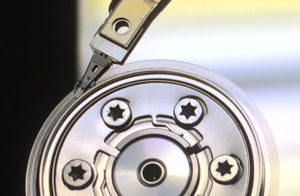
The platters and actuator heads of a hard drive.
If you’ve found this page, you’re probably running CHKDSK, Microsoft’s built-in utility for hard disk drives — and you’re wondering why it’s taking forever to complete.
First, a quick reminder: CHKDSK isn’t a data recovery utility. It can scan your hard drive for file system errors and repair those errors, which can improve hard drive performance and, in some cases, address minor data corruption.
However, it cannot fix a “broken” hard drive. If your HDD has physical issues, you should not run CHKDSK or any other software, as doing so can lead to permanent data loss.
With that in mind, let’s look at a few reasons why CHKDSK may take an extremely long time to run.
Your hard drive’s size and speed might affect the time needed for CHKDSK operations
CHKDSK works by scanning the file system, a logical structure that your operating system uses to organize files on the HDD (or SSD, but you don’t need to run CHKDSK on solid-state media).
As part of this process, CHKDSK will typically try to locate bad sectors — physical areas on the hard drive that cannot be used for data storage.
That means that a full scan with CHKDSK will take more time if:
- Your hard drive is extremely large.
- Your hard drive has a slow rotational speed (anything under 7,200 RPM is considered slow by current standards).
- Your hard drive is operating slowly for another reason.
Of these issues, the third is the only one that’s a real problem. If you’re running CHKDSK because your hard drive has already shown performance issues, a slow scan might indicate an impending read/write head failure, a spindle issue, or another serious concern.
You don’t need to worry about a long CHKDSK operation if you’ve got a 10-terabyte hard drive, or if you’re running the utility on an old drive with a 4,800 RPM speed.
Related: Don’t Use CHKDSK On a Failing Hard Drive
If CHKDSK is taking “forever,” your HDD may be seriously damaged.
When a drive is failing, any intensive file utility can exacerbate the damage. This is one of the reasons that we recommend against running CHKDSK; the utility can make data recovery much more difficult. Occasionally, it can cause permanent data loss by overwriting important components of the file system with bad data.
You can avoid this by running CHKDSK with the /F parameter, which checks for disk errors without checking for bad sectors. This also drastically cuts down on the time needed for the scan to complete.
If CHKDSK is taking too long, can I just shut my computer down?
We don’t recommend it. Interrupting CHKDSK could cause data corruption, which may render your drive unusable (until a qualified data recovery company addresses the underlying issue).
So, what should you do? Unfortunately, there are too many potential factors at play for a quick, simple answer. We recommend contacting a professional data recovery provider; be prepared to explain any symptoms that preceded the issue and basic information about your hard drive (brand, model, and size).
Our experts can help you find a solution that avoids accidental data loss. Datarecovery.com provides risk-free media evaluations — and we’re happy to discuss your case over the phone to determine whether you can interrupt CHKDSK without damaging your drive.
If you need data recovery, we support all of our hard drive services with a no data, no charge guarantee: If we’re unable to recover the files you need, there’s no charge for the attempt.
To get started, call 1-800-237-4200 or submit a case online.




